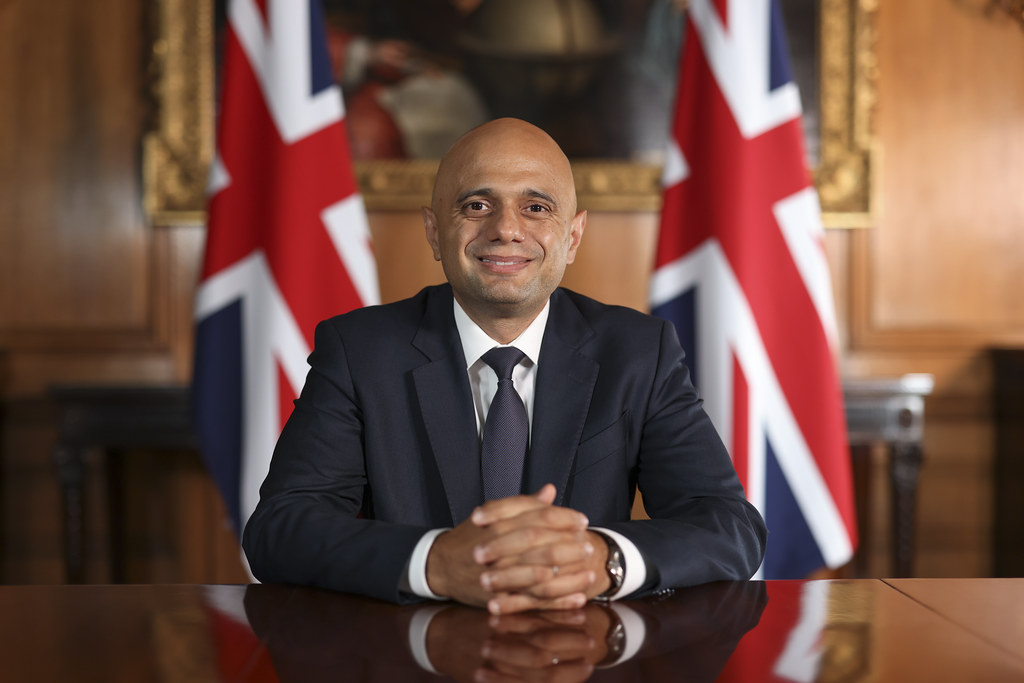
Health and Social Care Secretary, Sajid Javid, in an Oral statement to Parliament on COVID-19 on Tuesday 14 December, announced that there is community transmission of Omicron in the UK and Omicron has spread so widely across the world, the travel Red List is now less effective in slowing the incursion of Omicron from abroad.
Sajid Javid said, that whilst we’ll maintain our temporary testing measures for international travel, we will be removing all eleven countries from the travel Red List effective from 4am tomorrow (Wednesday) morning.
He further said, I’d like to turn to the Regulations number 1,400 proposes extending the use of face coverings. In October, UKHSA published an updated review of the evidence on the effectiveness of face coverings and concluded that there’s good evidence that they can help to reduce the spread of COVID-19 when worn in the community. This Regulation proposes extending the legal requirement to most indoor public settings – including theatres and cinemas. Although they’re not required in places where it wouldn’t be practical. For example, hospitality settings like cafes, restaurants, and pubs nightclubs or other dance venues or in exercise facilities like gyms.
This would mean anyone over 18 would need to show a negative lateral flow test to get into a limited number of higher risk settings, unless they’re double vaccinated.
These options include showing proof of a negative test from the last 48 hours proof of vaccination a medical exemption or evidence of participation in a clinical trial.
These Regulations cover a small number of settings that present a particular risk. Venues acting like nightclubs indoor events with over 500 or more attendees likely to stand and move around outdoor events with 4,000 or more attendees likely to stand and move around and all events with 10,000 or more attendees. These measures would come into force tomorrow. We’ve given a week’s notice of these changes so venues have time to put arrangements in place and I’m pleased to see that so many venues are already using these measures.
We can’t eliminate the risk of COVID-19 but we can reduce it, and these proposals offer a pragmatic way of doing this. People can either show proof through taking a lateral flow, meaning they’re less likely to be infectious or they’ll be at least double jabbed, which means they’ll be less likely to become severely unwell, if they’re exposed to COVID-19. These plans make would make some of the most potentially high risk environments even safer and provide a quick and easy way for people to show their status. This Regulation and the measures on face coverings will be reviewed by the 5th of January and they will sunset on the 26th of January and if we wanted to do something different, we would come back to the House.
But given the increasing dominance of Omicron, this approach no longer makes sense for public health purposes and nor is it sustainable for the economy. So we’re drawing on the testing capacity we’ve built to create a new system of daily testing for COVID contacts, which has started today. Instead of close contacts of confirmed or suspected cases having to self-isolate, all vaccinated contacts irrespective of whether the contact was with an Omicron case or not will be asked to take a lateral flow test every day for 7 days. Regulation 1,415 allows us to put this plan into action by revoking the Omicron-specific provisions for self-isolation.
I’d like to turn to measures to help keep the health and care system safe for the long term by making vaccination a condition of deployment for more health and social care settings. Across the UK, the overwhelming majority of us have made the positive choice to accept the offer of a vaccination against COVID-19 and 91 per cent of NHS staff already have had two doses.
But we need to get this figure even higher. Uptake rates vary between different health and care organisations, and across the country and despite the incredible effort to boost uptake across the country there are still approximately 94,000 NHS staff who are unvaccinated. It’s critical to patient safety that health and care staff get the jab. To protect some of the most vulnerable who’re in their care and also keep the NHS workforce standing strong in the wake of Omicron.
We made vaccination against COVID-19 a condition of deployment in care homes from the 11th of November this year. And contrary to what some feared we’re not aware of any care home closures where vaccination as a condition of deployment has been the primary cause. Today, we’re putting before the House regulations to extend this requirement to health and other social care settings. The settings in which this applies to include NHS hospitals, and GP and dental practices, regardless of whether a provider is publicly or privately funded. Anyone working in those health or social care activities regulated by the Care Quality Commission will need to be vaccinated against COVID-19 if their role will involve direct contact with patients.
This is apart from a few limited exemptions, for example for medical reasons. The definition of fully vaccinated is currently two doses, but we’re keeping this under review and of course I’d urge everyone who works in the NHS and social care to get their boosters too. I hear the concerns that have been raised about the impact of the measures on the workforce, especially during these winter months although even before the pandemic workplace policies were in place requiring the Hepatitis B vaccine for those who had to perform certain clinical procedures.
I firmly believe that getting vaccinated is something that should be a positive decision and I can assure the House the government has no intention of extending the condition of deployment to any other workforces or introducing mandatory vaccination more widely.
Kindly follow us on twitter:@AfricanVoice2









